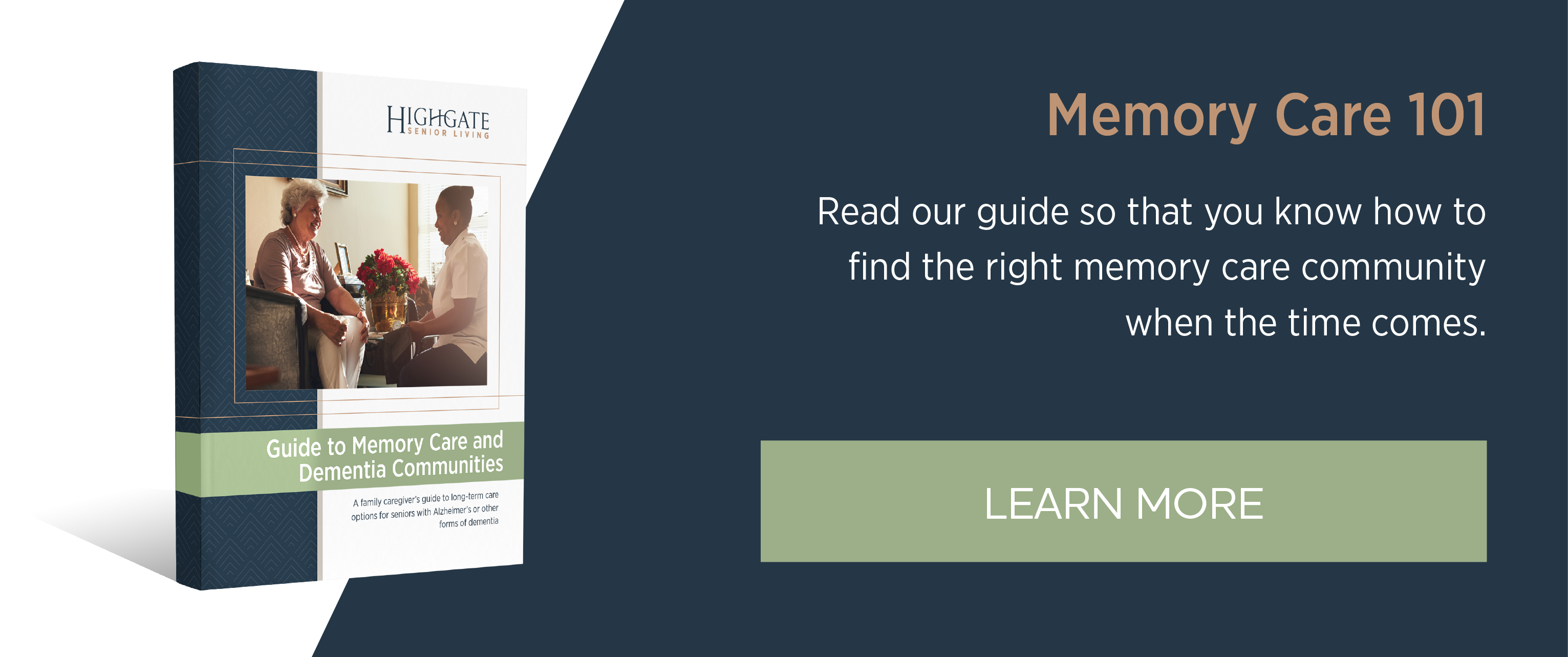![]() Moving a parent with dementia to a memory care facility is easier said than done when challenging family dynamics throw a wrench in the decision-making process. Getting brothers and sisters all on the same page can take patience, coordination, and several in-depth conversations.
Moving a parent with dementia to a memory care facility is easier said than done when challenging family dynamics throw a wrench in the decision-making process. Getting brothers and sisters all on the same page can take patience, coordination, and several in-depth conversations.
Francine Russo, author of They're Your Parents, Too, says that in 90 percent of families, one sibling shoulders most of the caregiving burden. From who handles the practical and emotional issues that go with caring for someone to who contributes money and how much, caring for a parent with dementia is complicated. When brothers and sisters are part of the caregiving team, it can be helpful and supportive or frustrating and stressful.
No two families are alike, but here are some potential scenarios you might encounter when talking with your siblings about a memory care facility and how to help your family navigate through them.
Don’t Spring the Conversation on the Unsuspecting
When one or more of your siblings lives across the country or even just a state away, they haven’t experienced firsthand the effects dementia has had on your parent like you have. You might have noticed the unopened bills piling up or the spoiled food in the refrigerator. But if your sister only comes home once or twice a year, she might be shocked that the sharp, independent mom she saw at Thanksgiving is now getting lost while driving and struggling to dress properly.
If you’ve taken on the responsibility of caregiving, it can be frustrating that your siblings have a difference of opinion than you on placing your parent in a memory care facility. Remember, your brother(s) or sister(s) haven’t experienced the severe mood swings your parent experiences, the increased difficulty in communicating simple requests, and even perhaps the physical or verbal abuse that can develop over time like you have. It’s hard to picture when you’re thousands of miles removed from the situation.
Avoid having a panicked conversation that feels like you are trying to rush the decision. The next time your siblings are all in town, hold a family meeting where you can have a frank and open discussion about your how much help your parent actually needs. Oftentimes, siblings who live out of the area don’t fully realize how much work you’re doing to care for Mom or Dad or how emotionally draining it can be. Instead of focusing on any anger or resentment you might feel, focus on what’s best for your parent, and listen to any concerns your family may have. An open, honest and respectful conversation is the easiest way to avoid turmoil.
Generate Family Support From Day One
It can be heartbreaking to watch your parent succumb to the symptoms of dementia. For some people, denial about the severity of a loved one’s illness or needs becomes a coping mechanism. But if you have a sibling who is unrealistic about your parent’s level of functioning and care needs, it puts everyone at risk.
If a sibling is refusing to accept that your parent has dementia and is ignoring changes in behavior, even if they are subtle, this can lead to your parent overdosing on medication, having accidents in the kitchen and bathroom, or not eating healthy.
But it also has an effect on you as the caregiver. Perhaps your sibling doesn’t offer to help out or thinks you’re overreacting when you bring up seeking professional help or getting legal papers in order. Additionally, your sibling might miss out on opportunities for quality time if they avoid visiting.
To avoid the dangers of denial, it helps if everyone in the family embraces the disease — and memory care. Caregiving is a family affair, so ask your siblings to join the team. Share with them some things you’ve learned about the disease, and point them to resources, such as the Alzheimer's Association website and the Mayo Clinic blog, so they can get educated, too. Talk to your siblings about the fears or anger they might be experiencing, and encourage them to join a local support group for caregivers where they can connect with others who understand what they are going through.
When possible, caring for a parent should be a shared responsibility. Ensure that everyone stays in tune with the changes your parent is going through as their dementia is progressing. If your sibling(s) don’t live near you, encourage phone calls and even Skype or video calls so there is no confusion when you have to have the conversation about how much your mom or dad has changed.
A successful conversation with siblings starts with being prepared. Here's a helpful guide you may want to share with your family.






